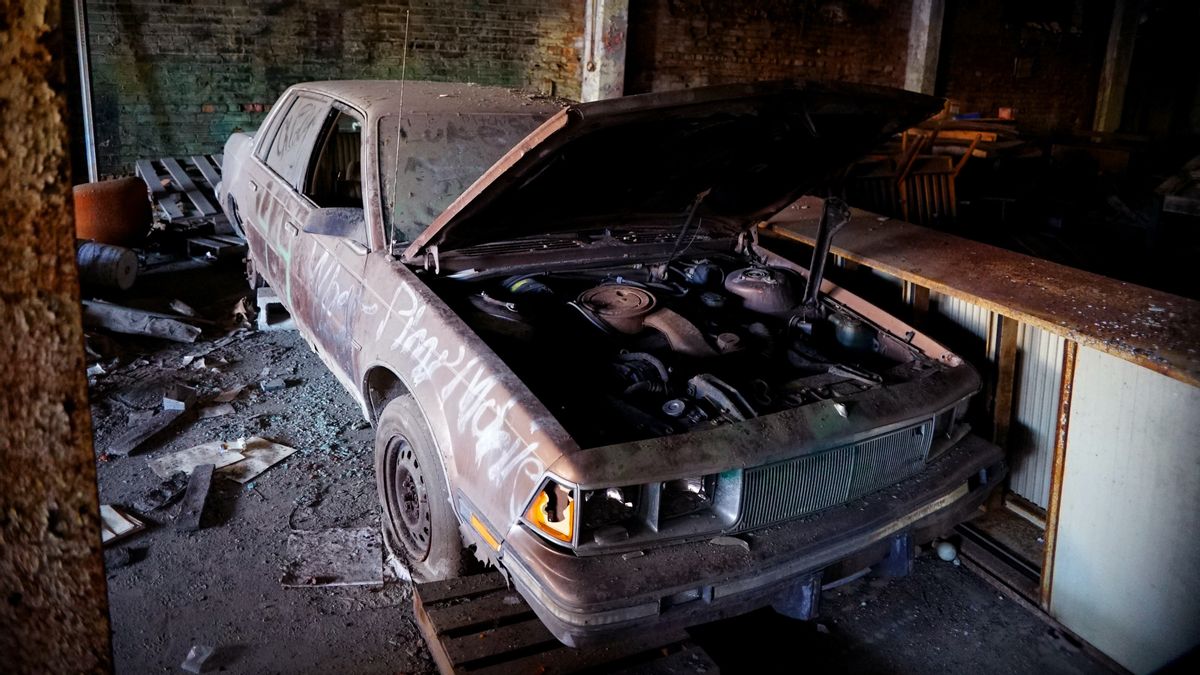YOGYAKARTA - The cause of the fast-hot diesel car engine is generally a complaint for old car owners. Not only old cars, new car engines can also heat up quickly if they are not treated.
Unfortunately, car owners generally underestimate some of the characteristics or causes. But the majority of them, the symptoms are less pronounced or even the car owner doesn't know about them.
But there's no need to be afraid, fast-hot car engines can be repaired very easily.
What are the aspects of the car engine triggers to heat up quickly? Here's the explanation.
1. Problem Radiator
Generally, the initial reason that made the car engine heat up was the radiator, which is the most important component as the car engine cooler.
Radiator is a place where the water storage is exhaled by the car's water pump.
It is this component in the form of a box that plays a role in flowing hot water so that the engine is always cold.
One of the things that makes the car engine hot is generally the radiator starting to have problems. If there are problems, generally the engine temperature will rise slowly.
Its characteristics can be easily recognized, is to see that the engine temperature indicator in the car is located at more than half.
The initial thing that can be seen for recognizing the cause is by checking the radiator. Check the water level, whether it is lacking or there is a leak.
If it's not enough, try to increase the water and observe whether the temperature is always rising or normal. The second is to see around the radiator, whether there is any remaining water leakage or not.
Leaked radiator water generally leaves dry marks. It will be easier to recognize it when you are wearing colored coolant water.
Just pay attention to the radiator, if there is a coolant dripped it means the radiator has a leak.
If it leaks, you can serve the radiator at the special radiator service workshop. If it can't be repaired, it must replace the new radiator.
2. Waterpump Damaged
Other components that can cause the temperature of the car engine to rise are waterpumps. As explained slightly above, the waterpump is useful for pumping water circulation from the engine to turn around in the radiator.
However, waterpumps are generally not damaged very often. Once damaged, generally because it is consumed by age.
But it's also good to check around the waterpump part whether the seeds have been damaged or not. If the waterpump is still good, you can change the seal.
3. Selang Radiator Bocor
This component is still one of the important components between the radiator and the waterpump. These radiator angles can get excited because of age.
Because it is made of rubber, so that over time you are exposed to heat, it will become hard and hot. This is what is generally one of the triggers for leakage in the radiator section.
The solution is to change the radiator tube with a new one.
The price of this component is also fairly cheap and easy to get.
4. Reduced Machine Oil
Lowering engine oil can also trigger the temperature of the car engine to heat up quickly. Check the height of the oil on the oil dipstick in the engine.
Should have checked the oil indicator once a month for a car that is more than 10 years old.
If when checked the level is below the set, add just a little engine oil. Sometimes people are lazy to check the engine oil, especially before traveling long distances.
5. Extra Fan Dies
Another thing that triggers a fast-hot car engine is the dead extra fan where this component also plays a role in cooling the radiator.
Extra fans can be damaged along with use, aka life. Usually extra fans live quite a long life, but sometimes there can be short circuits and make them die instantly.
Extra dead fans generally must be exchanged for new ones to make them more comfortable. If services are served, the lifespan is uncertain and can be damaged at any time.
6. Visco Fan Weak
Visco Fan can also be one of the triggers for the temperature of the car engine to rise from its generality. Visco fans are generally located behind the radiator and installed close to the engine spin fan.
Vasco fans who have started to weaken make the engine fan spin slow. This round makes the hot wind from the engine not wasted optimally.
If this is the case, there is actually still a solution to implement a visco fan service using the method of being injected by a special dynamo workshop.
But it would be safer to replace the fan visco with a new one if it was damaged. Not only more comfortable, it will obviously provide comfort when you are driving on the road.
Some of the things above are the trigger for the car engine to heat up quickly. Usually this is what is often encountered.
Although sometimes there are also several other components that trigger the engine to heat up, such as an oil cap or a radiator lid that is not fast enough and has started to get worse.
Well, it would be better if you should check regularly. Especially for cars that are more than 10 years old.
So after knowing the cause of the diesel car engine being hot quickly, see other interesting news on VOI, it's time to revolutionize news!
The English, Chinese, Japanese, Arabic, and French versions are automatically generated by the AI. So there may still be inaccuracies in translating, please always see Indonesian as our main language. (system supported by DigitalSiber.id)













